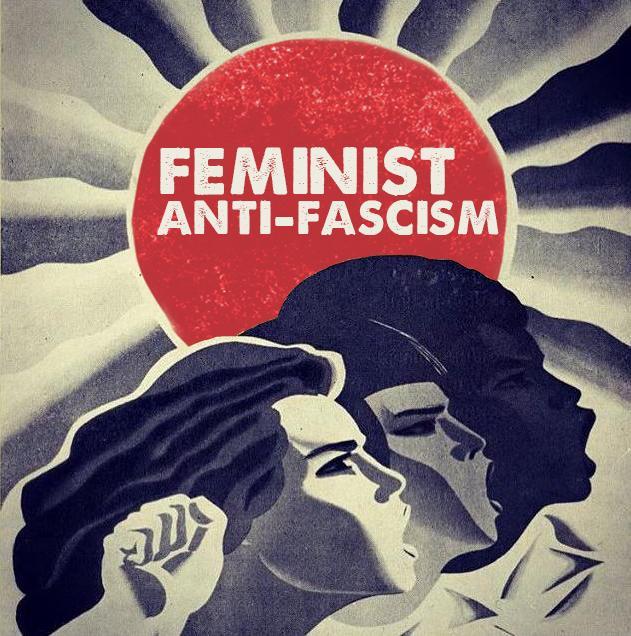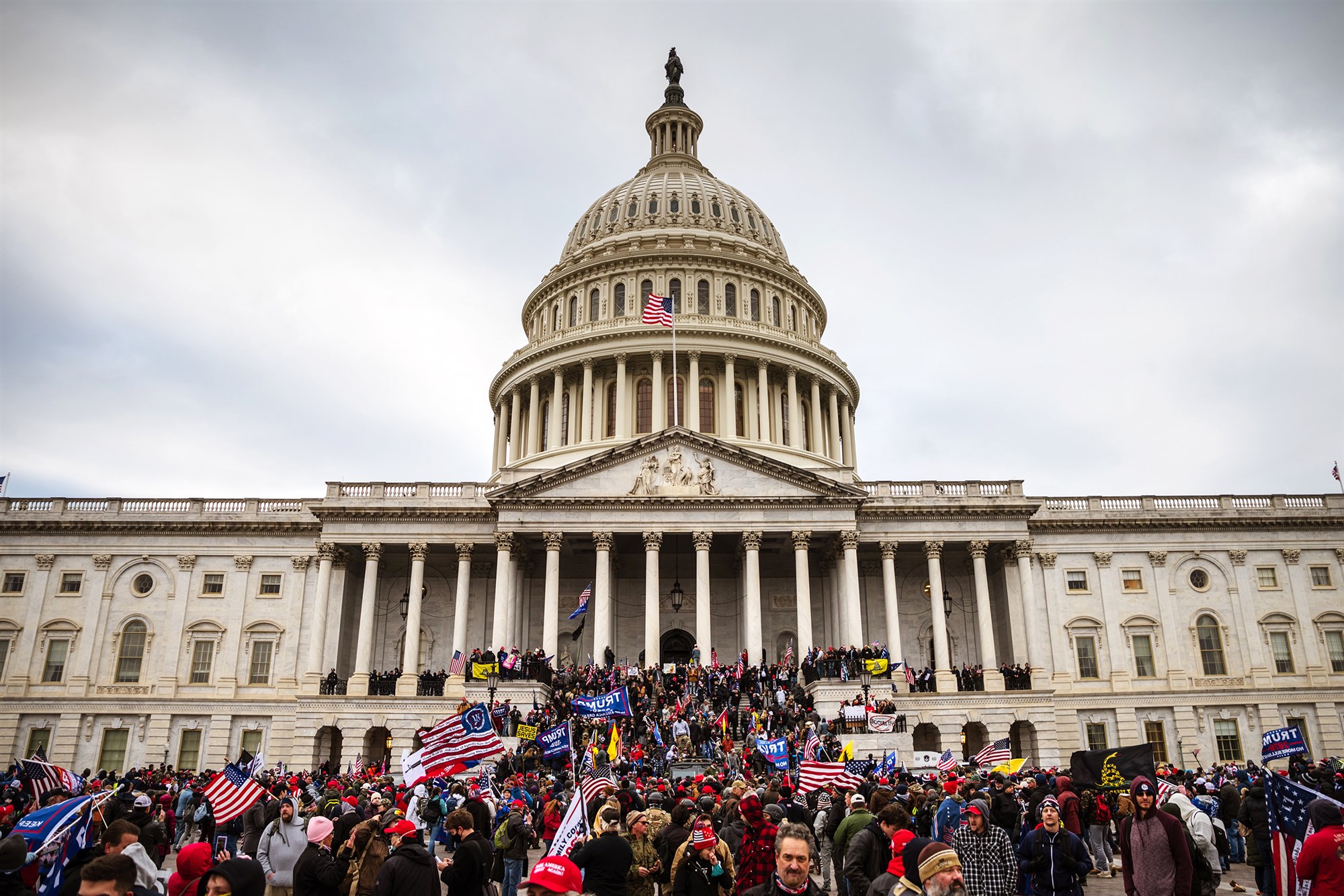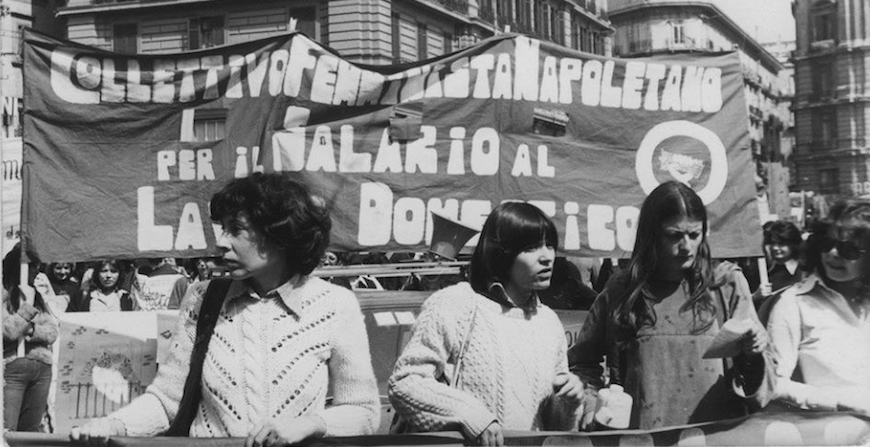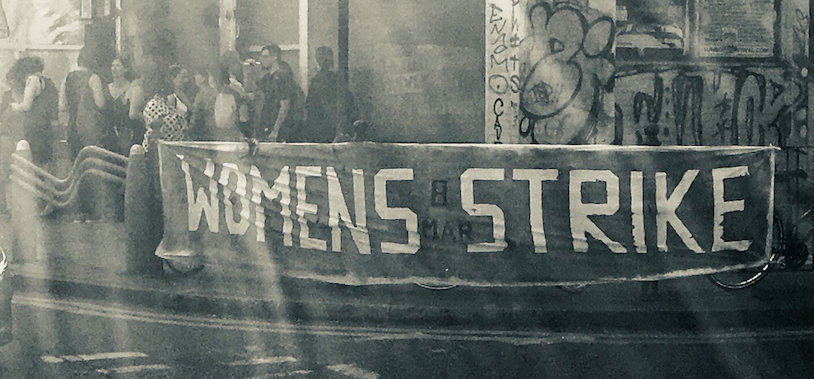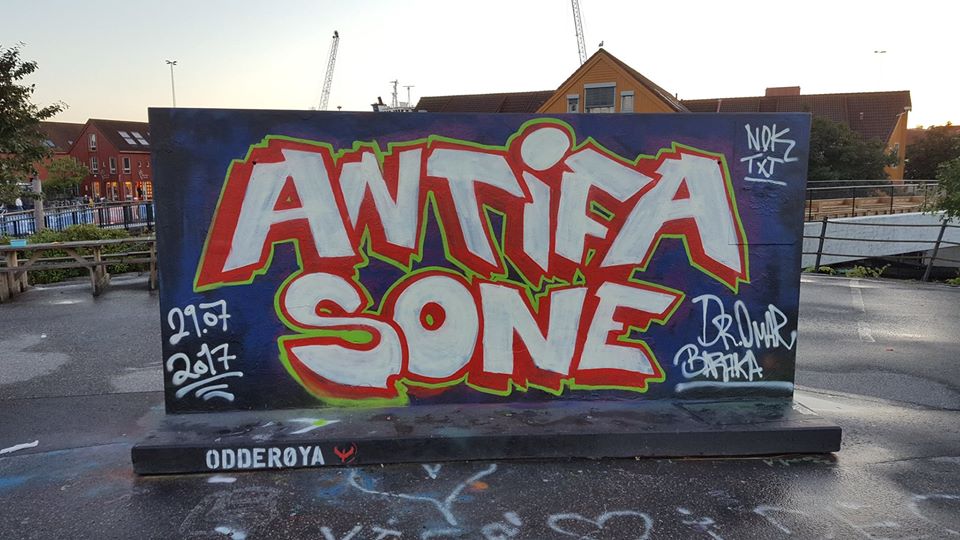I am generally against letting the far right set the terms of a debate. That’s why I think calls from the left to ‘address paedophilia’ are often disingenuous and misguided and actually coming from a similar place to the racist, socially conservative scaremongering of the right. Anyone engaging with far right ideologues on their own terms has already lost because the right are not making any of their claims about sexual violence based on facts, logic or out of a genuine concern for addressing the fundamental issues behind it. That is not to say that those with some level of genuine concern are never drawn in by their rhetoric; rather that it is ultimately shallow and cannot provide any real answers to the questions it seems to pose.
One of the most important things we need to ask is why the far right in the UK are so concerned about paedophilia specifically. I believe the answer is twofold: first, idealisation of ‘the family’ (read: white British family) and paternalism; second, opportunistic attempts to pin the key causes of the phenomenon on a racialised Other (namely, Pakistani men). Concerns around child abuse rarely centre on the children themselves but instead rely on the idea of the child, their blameless innocence, their purity. The child is not a fully formed person, they do not have autonomy and thus they are defenceless and must be protected. Far right men see themselves as the one’s charged with this cause. Except – what are they really doing to further it?
The far right latch onto the sanctity of the (white) child and family on deeply socially conservative terms and to further their own position. It is directly in the interests of white men to advocate for a nuclear family structure from which they largely reap the benefits – or believe that they do. The idea, then, is to protect women and children (who are, of course, always mentioned in the same regard) in order to protect the concept of the (white) family. Any encroachment upon this via a racialised Other is therefore unacceptable.
But why are the left following suit? We can’t concede this paternalistic viewpoint without first examining its flaws. Incidentally, the left is not free from social conservatism or misogyny. Left feminists need to take the view that survivors – be they adult or child – should be the ones at the centre of any conversation about sexual violence and exploitation. Calls for the left to blindly condemn ‘grooming gangs’ in exactly the same terms as the far right only furthers this uncritical analysis of the entire phenomenon, not to mention it does nothing to address the racist claims of the far right regarding the cases.
That said, I think it is useful to take a look more closely at the actual cases of paedophilia which have been the subject of far right opportunism. I would say that, for people who claim to be critical of the mainstream media, the far right certainly appear to take the majority of what the press reports as truth. Unfortunately, many politicians have also done this and been influenced by the right wing press into making, frankly, entirely unfounded and racist claims regarding the cases. For example, Sajid Javid’s Tweet used terms like ‘sick Asian paedophiles’ and the racist dog-whistle idea of ‘no go zones’ (as in, places where white non-Muslims cannot go). For me, this points to the far wider influence of the far right on mainstream discourse. This should be worrying to us all.
Why ‘grooming gangs’?
Let’s start with the very term ‘grooming gangs’ which appears in the mainstream press in relation to a number of cases, almost exclusively involving South Asian/Pakistani men. In fact, the report by the conservative think-tank Quilliam seems to support this view claiming, coincidentally, that ‘84% of ‘grooming gang’ members are Asian’. The category in and of itself, then, could be said to be defined by race for the most part. The National Crime Agency even sub-categorises child sexual exploitation as having two distinct sub-types ‘grooming gangs’ and ‘paedophile rings’ which are notably racialized with ‘paedophile rings’ being applied to majority white perpetrators. Their justification for this is that the perpetrators function in different ways with the ‘grooming gangs’ tending to focus on exploitation of vulnerable people and the ‘paedophile rings’ being based on actual sexual interest in minors.
It seems possible, then, that there really are two culturally and/or methodologically distinct ways of enacting this exploitation. However, it takes a logical leap to then go on to say that Asian men are the primary cause of childhood sexual exploitation in the UK. Think-tanks like Quilliam, known for rubber stamping governmental discrimination against Muslims by supporting their Prevent programme against ‘Islamic extremism’, essentially exist to validate racists by colluding with the state in the oppression of Muslims. Uncritically releasing those kinds of statistics with no attempt to interrogate the terminology or causal factors only furthers the far right’s cause.
It’s also somewhat easy to cherry pick cases of child sexual exploitation when the mainstream media helpfully highlights certain cases – the ones in which prosecution, eventually, goes ahead. It is clear that there are a number of cases in the UK in which non-white, migrant and Asian men were exploiting mostly young working class white girls (and boys) who were often in the foster care system. It is significant that they did not tend to target girls from within their own communities – presumably because it would not have been tolerated and would have been more difficult to get away with. It’s also important not to see these cases as necessarily exceptional to these communities – as the far right would have it – but as part of a far larger picture of exploitation which has been allowed and actively covered up by authorities and politicians for decades. The key difference between these cases and the cases which involved ruling/upper class white men and politicians is that the men are eventually brought to justice. We have yet to see this occur for cases such as the Cyril Smith case of a white prostitution ring in none-other than Rochdale, which more recently bore witness to its own ‘grooming gang’ case.
The Rotherham case
One of the earlier cases of these ‘grooming gangs’ took place in my hometown Rotherham (a small town in South Yorkshire). An important factor, which is wilfully ignored in almost all cases, is class. Almost all of the areas where these cases have arisen are largely working class with little state welfare provision. Rotherham, in my own experience, is a town very similar to many others in the North and Midlands – post-industrial, deprived and essentially dead. It is, therefore, a UKIP/Labour swing seat. The white working class live divided from the Asian working class by geographic area. In 2008, the Brinsworth and Catcliffe constituency in Rotherham elected a BNP councillor, John Gamble, who went on to join the neo-Nazi group National Front. This lays the groundwork for the successful far right mobilisation after the revelations around the ‘grooming gangs’ in 2010.
In Rotherham, the case of the ‘grooming gang’ goes far beyond the actual perpetrators and extends into an extremely worrying look at local ability to deal with child exploitation, sexual violence and safeguarding. The most important point, as I raised earlier, is what the experiences of the survivors were and how little they were actually believed. Here we can see, as in numerous other cases of sexual violence, patriarchal tropes come into play. If adult women are rarely believed with regards to sexual violence, if the police do not listen, if their experiences are minimised constantly, then what hope can young girls and boys have? If we do not take the experiences of survivors with the privilege of an adult’s authority seriously how can young people have a chance?
As I alluded to earlier, we rarely award young people and children any autonomy or say in their own lives. This is even more the case for children and young people in foster care who suffer from institutional abuse and exploitation at the hands of the state, as well as those who take advantage of their vulnerable position. Instead of asking the far more difficult question about how we care for and raise children both within the foster system and within families, we instead decide to focus only on perpetrators as a scapegoat for all of our ill-will towards migrants and non-white people.
The mistake of focusing only on perpetrators is widely made when discussing sexual violence at large. There are some legitimate reasons for this, such as anonymity for survivors, but there are many more illegitimate reasons such as focus on finding some exceptionalism or Otherness in the perpetrator which can explain away their crimes. To be clear: I think all survivors of these cases deserve justice and for their abusers to be prevented from enacting any further abuse. It is incredibly important for these trials to be held publicly and for the survivors’ testimonies to be heard. The survivors, along with the whistle blowers, who stepped forward in these cases after being denied help repeatedly, have shown unimaginable bravery. Instead of centring on their experiences of abuse and the subsequent cover-up by the authorities, their cases have been used as a game of political football.
The fact is that in Rotherham there is still an ‘ongoing investigation’ into the corruption of the local council, public sector and police force. The atmosphere at the council was described by many as misogynistic, bullying and dismissive towards women. They were found to have routinely ignored the survivors reports of violence and exploitation, even positing one twelve year old girl as having had ‘entirely consensual’ sex with multiple adult men. We can see here how survivor blaming begins early in women’s lives, particularly if they are ‘the wrong sort’. By that I mean working class girls with ‘complex needs’ as the authorities would have it. We consistently see an absolute failure to recognise that children and young people placed in difficult and disruptive living environments are likely to seek comfort, attention and relationships elsewhere. But the men who prey on them DO know that. That is precisely why they are targeted.
Someone else who knew this, and exploited it, was Karen MacGregor, founder of KinKids, a ‘safe haven’ charity for abused young people and kinship carers. MacGregor claimed to have helped the young people affected by the paedophile scandal and to have housed young girls in the area. However, she was jailed in 2015 for thirteen years for her part in ‘pimping out’ young girls and forcing them into prostitution. MacGregor was said to have invited young girls who were in care to stay at her house before forcing them to ‘earn their keep’ via sex with adult men. What strikes me is what one survivor said about how nice it was to be allowed to stay in a ‘posh house’ after having been in care. Once again, we see the class element arise – she was more able to be exploited due to her vulnerable position as someone in the UK foster care system. MacGregor, an ostensibly middle class white woman, was able to use her class privilege to avoid suspicion – she could talk the talk, use the language of abuse to cover her own.
Structural lack of accountability
As someone who regularly attends safeguarding training and conferences which involve social services, police, health workers and other support workers, I can see a little of how these scandals have impacted the way in which the training is delivered. But I rarely find that it’s enough. It is one thing claiming that the child’s voice should be heard and quite another to implement it within the context of an overworked staff who cannot look beyond the surface level of what a child is trying to say to them. We can talk about having a robust safeguarding strategy all we want but if those higher up have a self-interest in quelling those scandals (as we have seen to be the case repeatedly) what can those on the front line do? If we have to rely on whistleblowers rather than those managing the services to speak up how exactly is the system working?
‘No one individual is to blame’ that is the mantra we are told again and again. I think that I understand – they don’t want to discourage people from coming forward for fear of getting the blame for the situation itself. However, it is clear to me that in these cases there really are individuals whose wilful negligence is to blame. The problem is those people are senior figures, police officers and social work managers. As has been evidenced in other cases, it is nigh on impossible for the public to hold these people accountable – the IPCC (Independent Police Complaints Commission) often take years to produce any outcomes and often side with their own.
The right’s response
Surely, then, a campaign that demands justice and intends to seriously combat childhood sexual exploitation and paedophilia needs to address this corruption. Yet, as ever, the far right are devoid of a politically serious and nuanced take on tackling sexual violence choosing instead to do ‘silent marches’ against ‘grooming gangs’ full of drunk football fans with no clear messaging or demands. Organisations like the DFLA (Democratic Football Lads Alliance) and FLA (Football Lads Alliance) claim to be ‘against extremism’ but it is never especially clear how they relate this to their other aim of protesting ‘grooming gangs’ except that they seem to regard it in the same vein as ‘Islamic extremism’. This approach doesn’t really make sense – firstly, even when we accept the premise that the perpetrators in these cases were Muslim (which wilfully conflates ethnic origin with presumed religion) there is no evidence to suggest that they are part of the same tendency as ‘Islamic extremism’ or Islamists who tend to be more focused on public terrorist attacks which garner widespread attention in the West or on recruiting members to go abroad to join ISIS. Secondly, there is also no evidence to suggest that these crimes were done from a particularly religious perspective and, in fact, many Mosques and Islamic institutions have implemented safeguarding policy as a response. As I pointed out earlier, the survivors also tended not to be part of the Muslim community themselves (there are exceptions) which would suggest it is not condoned in this community.
As also noted previously, this is a selective campaign. It must be, necessarily, to avoid the fact that several prominent members of far right groups have been convicted of paedophilia and that speakers and attendees at DFLA rallies are themselves sexual abusers. An example I found particularly stark was far right gay icon Milo Yiannopoulos speaking at a DFLA rally last year despite his recent fall from grace for comments relating to the acceptability of paedophilia. Several far right big names have been convicted of offences against children, including Leigh McMillan (who was jailed for 17 years for sexually abusing a schoolgirl) and Richard Price (who was convicted for possessing indecent images of children among other offences) who were both members of the English Defence League.
Admittedly, the EDL are largely debunked at this stage, drawing fewer and fewer numbers, and have been overtaken by the DFLA, or rather have they have folded into one another as we see many of the usual suspects at the DFLA rallies. This is not particularly surprising to anyone who understands the true motivations of the group i.e. racist scapegoating, fear-mongering, capitalising on genuine outrage. Yet anyone claiming that the groups are simply trying to gain justice for survivors will be hard pushed to explain how exactly they plan to achieve this. The left has had its fair share of rallies against sexual violence – it’s a fair enough tactic especially when it’s about empowering survivors and making demands going forward – but I haven’t seen much of this from the right. The majority of their rallies are made up of middle-aged white men who are obnoxiously and belligerently shouting outside courts.
However, it should be noted, there have been some women involved, particularly in Sunderland. The left has been rightly reluctant to criticise these women, who are said to be survivors of sexual violence themselves. I see no reason to doubt that. Current statistics would have it that one in five women have experienced sexual assault in the UK in their lifetime. It follows, then, that survivorhood is, unfortunately, not a unique status so it shouldn’t be surprising for us on the left that some of those people chose to relate their experiences to a racist far right analysis. A lot of what the Facebook page Justice for Women & Children Sunderland has to say seems absolutely fair enough to the casual observer – of course we want rapists and abusers to be brought to justice, of course we blame social services, the authorities for the cover up. But scroll too far and you will quickly also be confronted with demands to ‘deport Muslims’ who are conflated with abusers. Part of the appeal of this campaign is that half the time, they seem to talk about the same things as the left. It’s a sort of populist appeal which can legitimise such groups and cover up their links to organisations much further to the right than the wider group ever was. In fact, a lot of liberal sympathisers with the cause were initially drawn to the group, according to local sources, before recognising the far right leadership. But make no mistake – these groups can and should be opposed and they will never offer answers to the questions they pose about sexual violence.
What can be done?
I talked earlier about focusing the narrative on survivors – I think this is fundamental to how we address sexual violence but I also think it involves recognising the subjectivity of survivors and their own understanding of their experience. Do we accept, for example, that a white woman who is abused by a black man therefore gets to generalise and say all black men are violent rapists? Can we recognise the injustice of her plight whilst also condemning her racist assumptions? A robust movement against sexual violence needs to grapple with these questions. Posts on the aforementioned page call for Asian men who abuse young women to be deported and charged with terrorism. Here we see the convergence of a genuine desire for justice with the enactment of a violent, racist border regime and Islamophobia. These are not unusual or, indeed, impossible demands. Perpetrators are already deported by the Home Office for crimes such as attempted forced marriage and honour-based violence. I commented earlier on the conflation of ‘grooming gangs’ with Islamic terrorists; the connection to the right seems clear – all Muslims are terrorists regardless of their crimes.
Although it might seem justifiable for people who have committed such terrible abuse, we cannot pretend that strengthening the powers of the British Home Office to deport people who have committed crimes will not have extremely negative consequences to all migrants. The UK already uses detention centres for migrants, a form of prison, despite this being denounced as a human rights abuse. Make no mistake, any power the British state has to deport people will further the overall hostile environment for migrants – which is exactly what the far right want. If they can start with more reasonable sounding demands, the encroaching violence will fall upon us slowly but surely.
It’s our job, then, to offer a concrete analysis and account of sexual violence that does not rely on racist scapegoating, that speaks to the concerns of all survivors, that challenges the authorities on their complicity and that does not collude in border regimes and the emboldening of state repression. Without recognising that sexual violence is about power and without understanding such power dynamics, we cannot begin to take steps to prevent it. A feminist analysis provides this via its understanding of structural inequalities that influence our intimate relationships with one another, as well as the ways in which the state can be an enforcer of these power imbalances and hierarchies. A Marxist feminist analysis can account for both the class and patriarchal dynamics inherent in these cases – namely that working class people were silenced by the ruling class, who continue to allow sexual violence to occur without consequence for those on the lowest rungs of society, and that patriarchy fosters a culture in which sexual exploitation is not only allowed but condoned. Through this, we can also recognise the peculiar relationship between adult and child as one that involves a fundamental power imbalance which is vulnerable to exploitation. But the mere fact that these dynamics exist does not necessarily lead to their exploitation – opportunities for this exploitation can be meaningfully and materially created and, therefore, they can be lessened, too.
Feminists can offer a perspective that the far right cannot – one that not only challenges the most public cases of child abuse and sexual abuse but also challenges all of the power dynamics and inequalities which surround those cases. All current support services for women and children affected by domestic violence were pushed for by an ostensibly feminist movement and are being gradually eroded by state austerity. We should look to our own communities and those around us and begin to challenge behaviour which leads to this violence – any group, on the right or the left, that enables this type of behaviour can make no legitimate challenge to sexual violence at large. A movement against sexual exploitation should be one which strives for a society in which those opportunities for exploitation created by structural inequalities are severely diminished. This is the only effective way to challenge this violence on a wider scale.
This article was written by a Plan C member.

